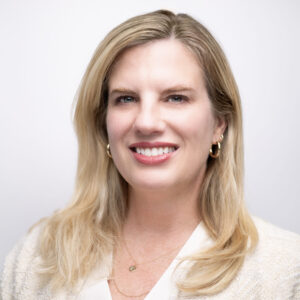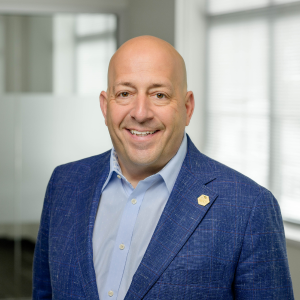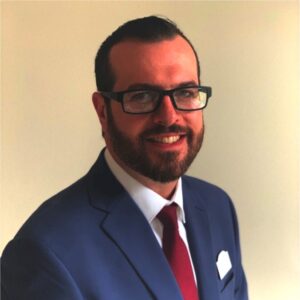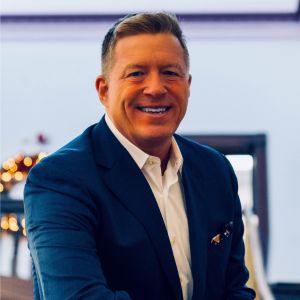Northern Hospitality: Creating a hospitality culture in a nursing home setting
In business as in life, healthy competition raises the bar of performance and expectation. With the wave of baby boomers soon to reach the shores of long-term care, competition among healthcare providers is growing. There is increased attention for facilities to develop “guest hospitality” as a way to improve organizational performance and customer satisfaction. It is also an opportunity to set oneself apart from intense local competition through a cultural change. Northern Services Group, headquartered in Monsey, New York, is meeting this challenge. Its array of senior lifestyle options in Rockland County provides for a continuum of care that includes 531 skilled nursing beds, 100 assisted living beds, and 5 adult home beds under the Medicaid program, and 155 market-rate retirement community units. Northern Services also offers two medical-model adult day care programs with 146 slots and two sessions, six days per week; SNAP (Supplemental Nutrition Assistance Program), providing home-cooked kosher meals for 75 homebound elderly recipients; Northern Home Care; and various outreach and community programs. The organization serves more than 1,000 seniors and employs more than 1,000 staff members, making it one of the largest employers in Rockland County.
Superior “guest services” has been one reason for the corporate successes of companies like McDonald’s, Disney, and the Marriott and Ritz-Carlton hotels chains, which are noted for their excellence in guest relations and ingrained hospitality cultures. Traditionally, the healthcare industry has not incorporated guest services as an integral part of the delivery of healthcare services. Organizations are divided into departments such as administration, nursing, admissions, social services, finance, dietary, and housekeeping, with each area concerned with its own goals and objectives. To successfully implement a guest hospitality program, it must be integrated into every area of the organization—a challenge worth tackling.
Many healthcare organizations have long-established staff-recognition programs that help set a standard for employee behavior. The concept of creating a program that embraces the resident and family as “guests” while incorporating an employee-recognition program is a unique concept in the healthcare setting.
One need only recall a recent advertising campaign for Hilton Hotels and its slogan, “Be hospitable,” to understand Northern Services’ guest hospitality program. We wanted to create an employee and corporate culture that treats everyone who enters our facilities as if they are guests in our own home.
Planning
In late 2004, a Northern Services director attended the Ritz-Carlton “Legendary Service” program to learn firsthand how a premier service organization established itself as one of the finest in the nation, if not the world. Our director returned from the seminar with an idea for a program based on Ritz-Carlton service principles.
The basic theme that would pervade our program is: How is it that the Ritz-Carlton hotel is known as one of the finest hotels in the world even by people who have never been there? The guiding focus of our Northern Hospitality program is: How do we create an organization that is known as the finest—even by people who have never entered our doors?
Clearly, as long-term care providers we are expected to provide quality healthcare to our residents. Families expect that their loved ones will be given the proper medical treatment and that we will meet all state regulations. We do this just to meet basic expectations. Our goal was to exceed expectations by establishing specific guidelines for how we expect our staff to treat guests.
Implementation
Our guest hospitality program, Northern Hospitality, was developed over nine months. First, an interdisciplinary “hospitality” committee was formed. The committee was made up of corporate directors of Operations; department representatives from Human Resources, Marketing, Admissions, and Home Care; and facility administrators/directors. Biweekly and, eventually, weekly meetings were held to brainstorm and conceptualize the intricacies of the Northern Hospitality program.
We created an outline for the Basics of Northern Hospitality, which would define the expectations we have for our staff. By specifically defining our expectations, staff will know what we, as a corporation, believe to be important. All facets of the program revolve around the Basics and help to support the hospitality culture. The expectations are printed on a trifold (2 × 3″) Basics card that each employee carries at all times. The Basics are a series of 10 word/concepts as follows:
Hospitality
Respect
Integrity
Pride
Anticipate
Manners
Trust
Commitment
Warmth
WOW
On the Basics card each word is simply defined and summarizes what staff should know about the concept and how they may apply it to our guests. The following is an outline of all the components of the Northern Hospitality program:
A training module was developed to support each Northern Basic.
Each module is presented to staff during mandatory monthly in-services.
Training is decentralized—presented by administrators, department heads, and key influential staff members, which enables senior staff to own the program and use their own ideas to train staff on the Basic (or Word) of the Month.
“Real Life Acts of Hospitality” that occur in the organization are shared throughout the corporation. These happenings are recorded at the facilities and then sent to the Hospitality Committee, which then selects the most hospitable event and sends it via e-mail to the department heads. The event is then read during weekly stand-up team meetings. The staff read the Basic, share the selected Real Life Acts of Hospitality story of the week, and then briefly discuss how to implement the Basic concept into their daily routines.
Just before the program kickoff, the Hospitality Committee arranged for those who were to help implement the program to attend a presentation held at the Ritz-Carlton Hotel in New York City. After breakfast a presentation was made by the Ritz site training manager; it was an impressive event designed to get the Northern Hospitality program off to an outstanding start. It also allowed staff to understand exactly what our goal for Northern Hospitality would be and how the program worked in other settings.
The committee organized an official program kickoff at the corporate office, inviting key staff, managers, and administration. Two corporate directors performed a skit that demonstrated the difference between service and hospitality: Service is work done for others as a business, especially for pay, whereas hospitality is cordial and generous disposition toward guests without an expected reward. In addition, training on the first of the 10 modules—Hospitality—was provided. Administrators and managers were then able to take this training back to their facilities and perform their own in-services. Some used the training techniques that they saw used at the corporate kickoff, while many others went above and beyond and performed their own skits, read poems, and used other exciting formats.
Once the program began, it was important to create opportunities for corporate directors, administrators, department heads, and frontline staff to reinforce the program’s principles day to day. Many times, managerial staff simply needed to say, “What is the Word of the Month?” or “Happy Northern Hospitality Day!”
Throughout the program’s first 10-month cycle, success was measured by resident and family feedback and overall congeniality among staff members. We also noted staff “buy in” (attendance at in-services), staff wearing Northern Hospitality lanyards and carrying their Basics card, comment cards written by family members and guests (see sidebar, p. 29), and Real Life Acts of Hospitality event forms.
At the end of the 10-month cycle, the committee organized a surprise scenic boat trip for the key staff members who played an integral part in supporting the hospitality program. As a tribute to the final module, or Word of the Month, the day was dubbed a “WOW” day. The outing was the committee’s way of saying “thank you” to those staff members who helped to make the Northern Hospitality program a success, and it was management’s way of giving back—showing ultimate hospitality to the staff.
Obstacles were uncovered during the early phase of implementation. Weekly stand-up meetings were easy for the full-time shifts to attend, especially for staff on the 7 a.m. to 3 p.m. shift, because administrators and managers could hold early or mid-morning meetings. Night managers had a more difficult task. These managers had to take “ownership” of the program and organize staff working night shifts to provide them with the proper training on the monthly modules and at the weekly stand-ups. It was also important, but sometimes difficult, for administrators and managers to stay connected with the part-time personnel and keep them updated and trained on the Northern Hospitality program.
Potential Obstacles Identified
Needless to say, the Northern Hospitality program did not just sail to success. There were obstacles to identify that took some effort to overcome:
A lack of buy-in from staff.
A 100% commitment from the top of the organization is needed—financial and time commitments are necessary to change a corporate culture.
Administrators must feel that implementing this program will have a positive impact on the facility, its staff, residents, and guests.
The program’s successes must be documented so that its positive impact may be seen by all staff and guests.
Corporate follow-up on the facility level so that the Northern Hospitality program is identified by staff to be important. Staff to be evaluated by their impact on the successful implementation of Northern Hospitality.
Program Evaluation
The following are the documented results of the Northern Hospitality program after 10 months of implementation. The impact of the program included:
A “buzz” was created about the program.
Staff go out of their way to be recognized for exhibiting hospitality.
More smiles are evident.
Staff feel appreciated.
Occupancy improved.
Staff are taking ownership of issues/solutions.
Lower turnover has been seen.
Staff know what we expect of them.
Guest acknowledgment/comments attest to the program’s success.
We are now in the second year of in-service training and recognition. To reinforce hospitality, practical projects are being executed each month including:
a Jeopardy!-type game for the word hospitality;
simple “Words of the Week” like please, thank you, you are welcome, and it would be my pleasure for the word manners; and
visual, vocal, and video projects for the word respect.
Special projects will continue to be selected and rotated throughout all Northern Services locations. This experience can best be summed up by an LPN who said, “The lessons learned from Northern Hospitality have extended to my life outside the nursing home. The information we receive is really something you can use during your daily life and pass on to your children and those you come into contact with outside the facility.”
Summary
Healthcare is a service-based industry. People put their well-being, or the well-being of their loved ones, into our hands. Our organization has a 25-year history of providing quality service to our residents and their families. Where we excel, however, is in our insight to provide more than just quality service.
We saw the need for a change in the way we act while we provide our care—a change that could alter the way healthcare providers perform their duties as professionals. We had an idea. We consulted with legendary hospitality providers. We formulated a plan. We implemented our plan. And we are now realizing the rewards of a cultural change that will surely change the healthcare industry. Managers are involved and invigorated. Staff is energized and motivated. Residents are happy and responsive. This is healthcare and hospitality at its best.
For more information about the Northern Hospitality program, phone (845) 356-9880. To send your comments to the editors, please send e-mail to optima0407@nursinghomesmagazine.com.
I Advance Senior Care is the industry-leading source for practical, in-depth, business-building, and resident care information for owners, executives, administrators, and directors of nursing at assisted living communities, skilled nursing facilities, post-acute facilities, and continuing care retirement communities. The I Advance Senior Care editorial team and industry experts provide market analysis, strategic direction, policy commentary, clinical best-practices, business management, and technology breakthroughs.
I Advance Senior Care is part of the Institute for the Advancement of Senior Care and published by Plain-English Health Care.
Related Articles
Topics: Articles , Nutrition , Operations












